HOME / ADVOCATING FOR CHANGE / EDUCATION

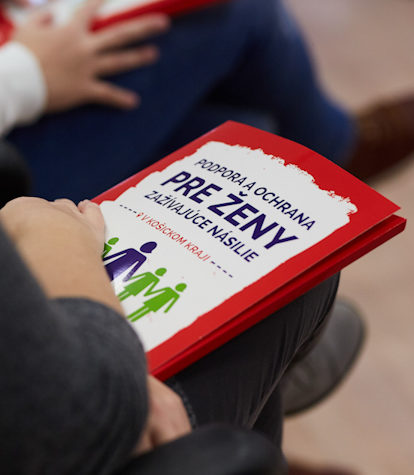
Here you can find out more about the various educational activities we organise on a regular basis, as well as those that are occasional. If you are interested in our training or our workshops and seminars, please call or write to us. The conditions for each training or workshop are usually arranged individually for each group. The reason is that we try to make each training or workshop as “tailored” to the needs of the participants as possible. A group of people interested in learning is necessary for a training or workshop to take place. The reason is that we try to make each training or workshop as “tailored” to the needs of the participants as possible. A group of people interested in learning is necessary for a training or workshop to take place. The ideal number of people in a group for the purposes of training and workshops is 10-12, it can be larger groups for seminars or lectures.
At conferences, people from different professions can share experience, discuss practice in providing protection and assistance to women experiencing violence and their children, gain new knowledge and know-how, as well as get to know each other, network and develop cooperation. In the long term, we strive to organise regular conferences at both regional and national level. As we have well-developed cooperation with our colleagues abroad, we try to bring knowledge, trends and know-how from other countries to Slovakia. We see the importance of conferences in the fact that they help to develop a professional discussion on violence against women in intimate relationships, which is essential for further development and positive changes in the practice of various institutions.
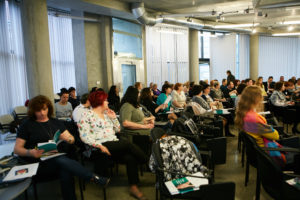
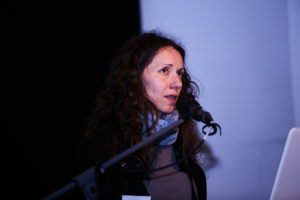
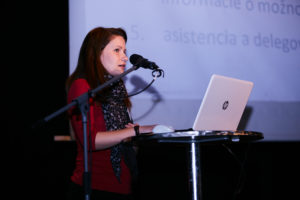
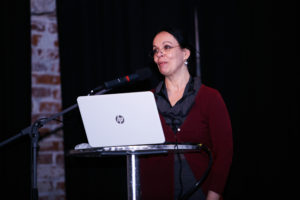

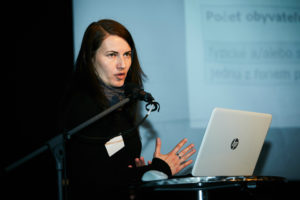
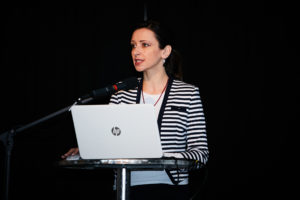
Trainings provide the greatest range and depth of knowledge and skills. Our standard training sessions are 100 hours long, spread over several blocks and days. Trainings are suitable for people who work with women experiencing partner violence and/or their children directly as part of their profession and who are responsible for ensuring proper protection, assistance and support for them. In-depth education in the form of training offers a space to acquire theoretical knowledge about the specificities, causes and impacts of violence on women and their children, as well as development of practical skills such as identifying violence or managing risks and vulnerability to violence or preparation of safety plans with women and their children. For groups from one particular profession (e.g. NGOs or the police), we adapt the content of the training to the nature of the interventions they do in cases of partner violence against women and their children and the scope of their competencies. The trainings are conducted in an experiential and interactive way so that participants have the opportunity to ask questions, discuss, share their experiences and also to try out practical skills and receive feedback.
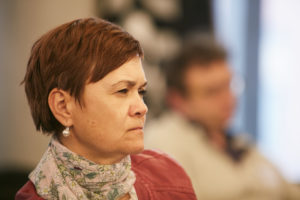
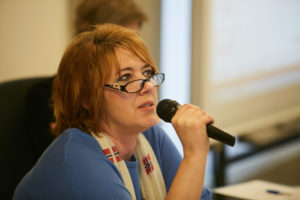
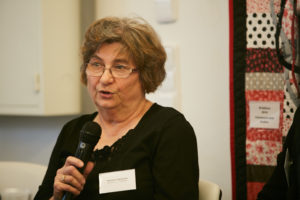
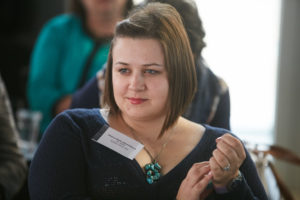
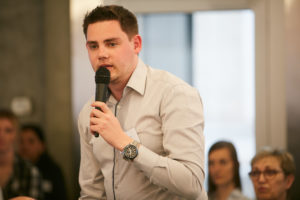
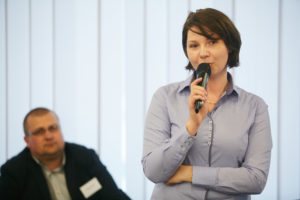
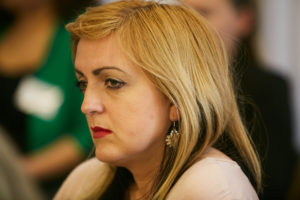
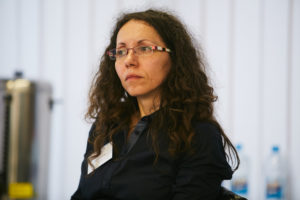
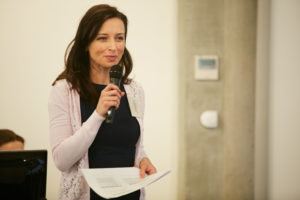

Workshops are shorter in their scope. Most often they are one or two days long and designed for different professions that come into contact with women experiencing violence and/or their children. In our experience, these are different professions such as social workers, health professionals, teachers, psychologists and others. In their work, they need to know the basics about violence against women in intimate relationships and their children, as well as basic skills. They need to be able to understand women's situations and know how to talk to them and their children about violence, what not to do in order not to put them in danger or to give them correct information. Similarly to the trainings, the workshops are conducted in an experiential and interactive way. Seminars and webinars are usually 2-4 hours long and are more informative in nature. Their purpose is for the participants to obtain basic information or gain basic theoretical knowledge about the issue of violence against women in intimate relationships or some particular aspect of the topic.


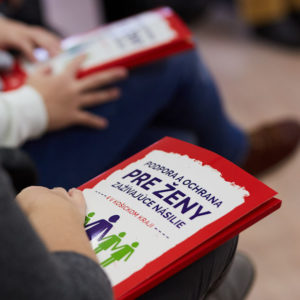
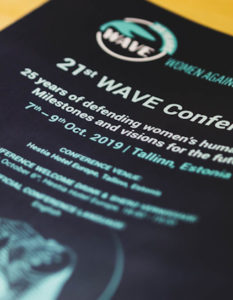
Lectures and discussions usually focus on the primary prevention of violence against women in intimate relationships. These are often discussions with young people about how to recognise whether their intimate relationship is healthy, unhealthy or violent, or about what mutual respect means in a relationship. Primary prevention is not an area that is on Fenestra’s regular agenda. We know from young people and their teachers that the topic of violence against women and girls in intimate relationships is missing in schools. Therefore, occasionally, when time and capacity allow, we do such discussions in cooperation with schools or other institutions.
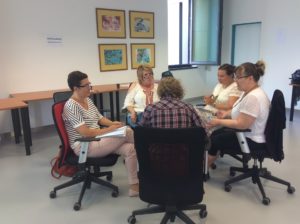
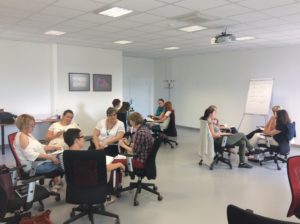
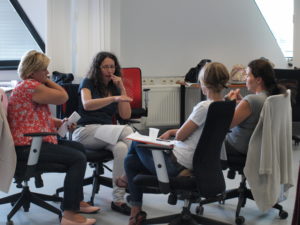
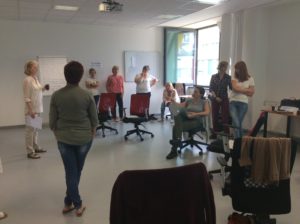
Young people can also attend Human Rights Schools, as human rights are not given enough space and attention in the school curriculum. Nevertheless, understanding the concept of human rights and learning to respect different groups of people and their rights is a fundamental pillar of any well-functioning democratic society. That is why we organized both a Women's Human Rights School, as well as more broadly focused Human Rights Schools in cooperation with other human rights organisations in the past. As with primary prevention, we organise human rights schools when we have the space and time to do so, in addition to direct assistance to women and their children and other regular activities we focus on.
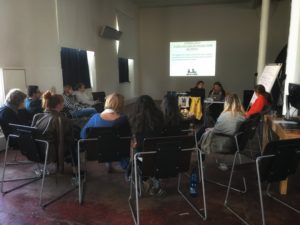
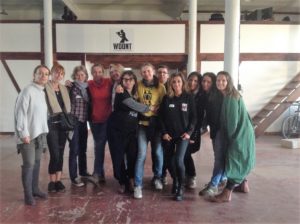
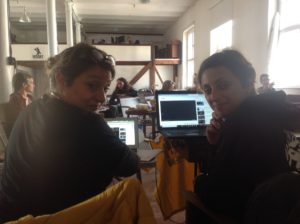
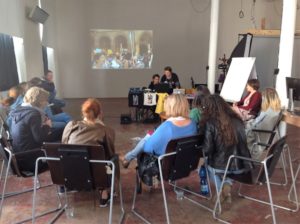
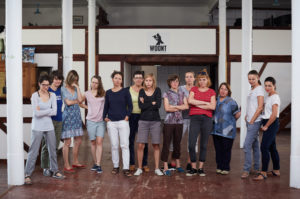
Fenestra
Festivalové námestie 2, Košice
+421 911 224 777
fenestra@fenestra.sk
IČO: 35531151








< 16 / 16 >
Does your partner justify his violent behaviour by drinking or having a bad day at work, etc.?
< 13 / 16 >
Does your partner threaten to take your children away from you or not let you take them with you if you try to leave him?
< 12 / 16 >
Has your partner ever prevented you from taking necessary medication or seeking medical help when you needed it?
< 10 / 16 >
Has there been a situation when your partner did not give you money and you could not buy things you needed for yourself and your children because of this?
< 7 / 16 >
Have you ever had a partner deliberately destroy your personal belongings or your children's personal belongings?
< 6 / 16 >
Do you sometimes change your behaviour because you are afraid of what your partner will say or do to you?
Vysledok
Ani na jednu otázku ste neodpovedali ÁNO. Znamená to, že nezažívate násilie.
Vysledok
Odpovedali ste ÁNO na 0 zo 16 otázok. Pravdepodobne zažívate násilie. Ak potrebujete pomoc, zavolajte nám.